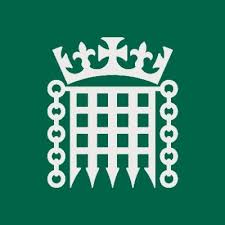Martin Vickers – 2022 Speech on BBC Local Radio
The speech made by Martin Vickers, the Conservative MP for Cleethorpes, in the House of Commons on 8 December 2022.
I am grateful for the opportunity to speak in this debate, and I congratulate my right hon. Friend the Member for Hemel Hempstead (Sir Mike Penning) on securing it. It is quite clear that this is something on which Members across the House feel passionately. It crops up every few years, and I can recall speaking in similar debates over the 12 years I have been here.
There is no doubt that the cuts proposed by the BBC have led to a considerable backlash from the public, this House and BBC staff, who feel badly let down by the announcement. These cuts will severely diminish what is highly valued by listeners and goes some way to underpin local democracy. My hon. Friend the Member for Worcester (Mr Walker) referred to his father’s change to the county boundaries. He created the—much-hated, I have to say—county of Humberside, and Humberside is actually a swear-word in our part of the country, except when we talk about BBC Radio Humberside, which is greatly valued.
When considering my contribution to today’s debate, I reread the representations I have received in recent weeks and realised I could not put the argument across better than a BBC Radio Humberside presenter and union representative, speaking on behalf of the NUJ, Andy Comfort, who has been with BBC Radio Humberside for many years, and much of what I have to say is based on his submission to me, which I received a week or two ago.
The proposals involve scrapping bespoke local programmes and sharing shows between several regional stations after 2 pm. In the evenings and at weekends, these shared programmes will span an even greater region, as has already been mentioned, and the coverage at night and on Sundays will finish much earlier. Currently, BBC local radio provides a vital service of news, information and companionship for its communities. The BBC says it will maintain local news bulletins as they are—on weekdays from 6 am to 6 pm, and at weekends from 7 am to 1 pm—but there is no guarantee that these will be presented from the local area.
This move is part of a wider plan called “digital first”. The BBC plans to move its journalists into local teams and regional hubs. For Radio Humberside, it is largely a positive move, because teams in radio, online and TV will work together and ensure a joined-up approach to news gathering. There will also be regional investigation teams—investigative journalism has already been mentioned—which is very good. There will be more content that airs first or exclusively on BBC Sounds. BBC Sounds is great; I only wish it was not advertised quite so often—it seems every two or three minutes —when I am trying to listen to a football commentary or whatever.
However, this digital investment comes at a cost to “linear” local radio—live programmes broadcast on traditional FM and DAB radio sets. Across England, BBC local radio reaches 5.7 million people every week. Many of these listeners are not “digitally affluent” and may not have easy access to high-speed broadband or smart phones. They have their radio permanently tuned to their local radio station, so at the touch of a button they are immediately in contact with that friendly voice. It is a friend in the corner.
Mr Comfort from BBC Radio Humberside also points out that regional programmes may struggle to juggle priorities for competing demands for news. If two major stories happen within one region, for instance, which one will the regional programme choose to cover? We also know from the BBC proposals that each local radio station will have an average of just two journalist reporters, whereas at present the average is five or six. This is a serious dilution of journalistic resource in an already straitened part of the BBC’s service and output.
BBC management claim that these changes will future-proof BBC local, because traditional linear audiences are declining. The ambition is for all services, but mainly digital, to reach at least 50% of the audience each week. But they are throwing away vast swathes of local output on the radio, highly valued by audiences from all walks of life, but especially the most vulnerable and marginalised in society. Mr Comfort says that the majority of BBC Radio Humberside listeners pay the BBC licence fee and rightly deserve better.
Sadly, local newspapers are in decline, as has been mentioned. In my area we still have a daily newspaper, the Grimsby Telegraph, but the local content, like local content on the BBC, is now much diminished. That is bad for our local communities and does not allow voluntary groups, charities, churches and other local organisations to put forward what they are doing for their local communities in the same way as in the past.
It is clear from the representations I have received, as well as from the contributions we have heard this afternoon, that the BBC has once again made a grave miscalculation. I join colleagues in asking the BBC to reconsider this proposal. While we are on the subject, I also urge the BBC to reconsider its policy of imposing the licence fee on the over-75s, which continues to be a sore point for my constituents and, I am sure, those of many colleagues.
On both these issues, the BBC has taken a misstep. I could add another misstep as an aside: the BBC’s abandoning of the 5 o’clock reading of the football results on Saturday afternoons, although that is perhaps slightly less significant than the future of local radio. The BBC risks losing public support, which would be a real shame because it provides a vital service that all our constituents value. I urge the Minister to make the strongest possible representations to the BBC.

